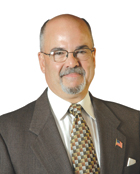
In this recovery, interest rates remain historically low, providing very low returns on cash accounts. Long-term care businesses have cash accounts, including checking, escrow, money market, savings and resident trust.
What are you earning on these accounts? Do you have an investment policy covering these accounts? If your answers are extremely low rates of interest and “yes” to having an investment policy question, you might be interested in some brief thoughts on enhancing cash management.
Long-term care is a heavily regulated industry and so is investment management. Many escrow and reserve accounts are required, especially for multi-site organizations. It is not uncommon for an organization with five communities or separate 501(c)3 arrangements to have more than 50 cash accounts. Some of these accounts could be pared down but most are necessary due to a bond issue, bank agreement or state requirements. The assets in cash accounts often total meaningful sums of money.
One of the largest owners/managers of senior living properties recently had its cash accounts reviewed. This organization found dozens of accounts representing tens of millions of dollars that could be pooled to enhance investment returns. The potential result would be meaningful.
Enhanced cash management services can be provided by investment advisors and are used to increase yields on cash balances.
One benefit to your organization includes placing some of these cash balances in U.S. government guaranteed investments with yields significantly higher than what the bank is paying the account. The CFO overseeing the accounts continues to have full liquidity while all the instruments in the enhanced cash portfolio will be invested according to any specific designated parameters, and will have a fiduciary agent capturing incremental yield.
From the October 01, 2011 Issue of McKnight's Long-Term Care News




